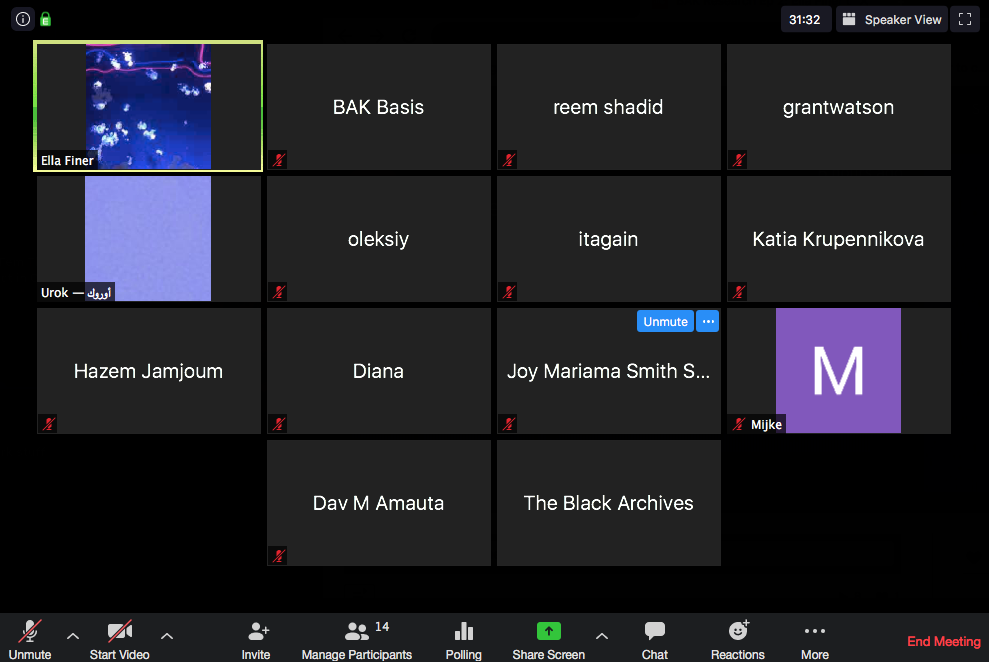Urok Shirhan
Working at the intersection of performance, visual arts, and critical theory, artist Urok Shirhan’s work explores the politics of sound, image, and speech in relation to power and affect. Her projects are often entangled with found materials and autobiographic narratives. Her latest body of research considers questions of the voice as well as the tongue in relation to language, phonetics, displacement, and assimilation. Shirhan has an MA from Goldsmiths University of London, London and a BFA from Gerrit Rietveld Academy, Amsterdam. Recent presentations have been at Onassis Stegi, Athens, 2020; MoMA PS1, New York, 2019–2020; TENT, Rotterdam, 2019; Drodesera Festival, Dro, 2018; AUB Art Galleries, Beirut, 2017–2018; Nottingham Contemporary, Nottingham, 2017; Moscow International Biennale for Young Art, Moscow, 2016; Frascati Theatre, Amsterdam, 2016; among others. Shirhan lives and works in and out of Utrecht.

